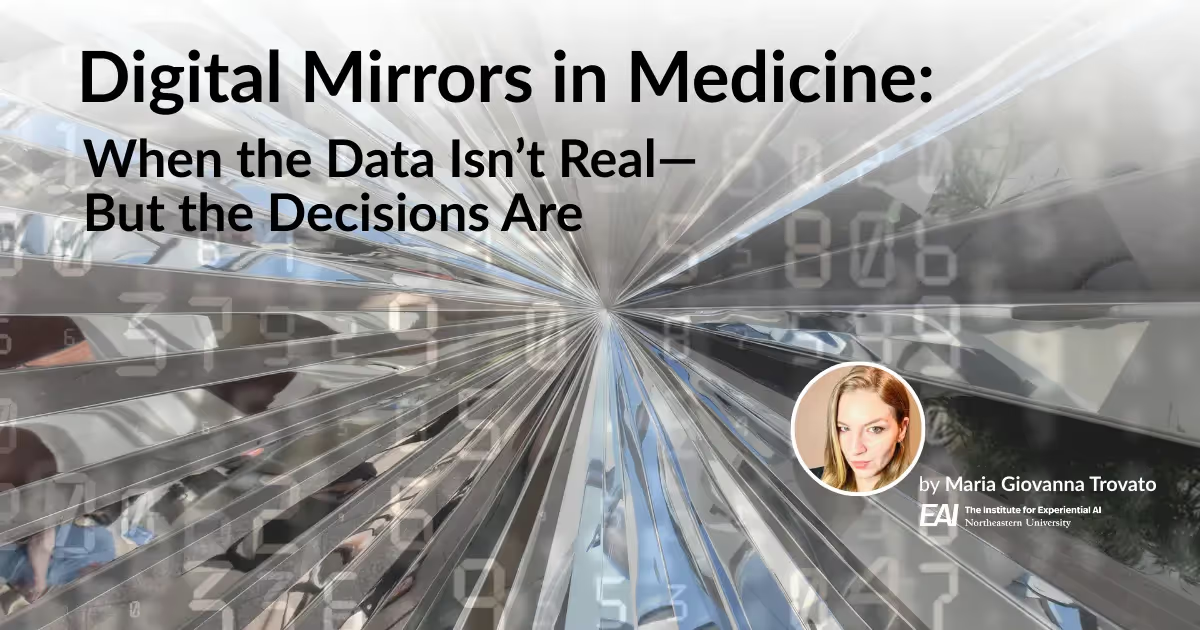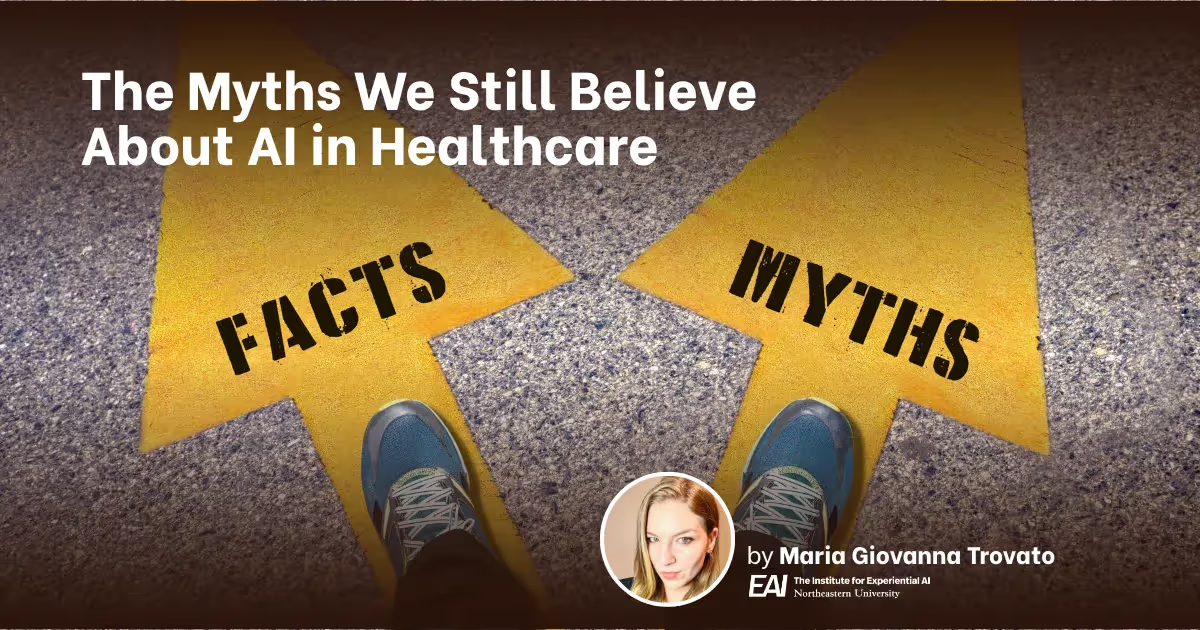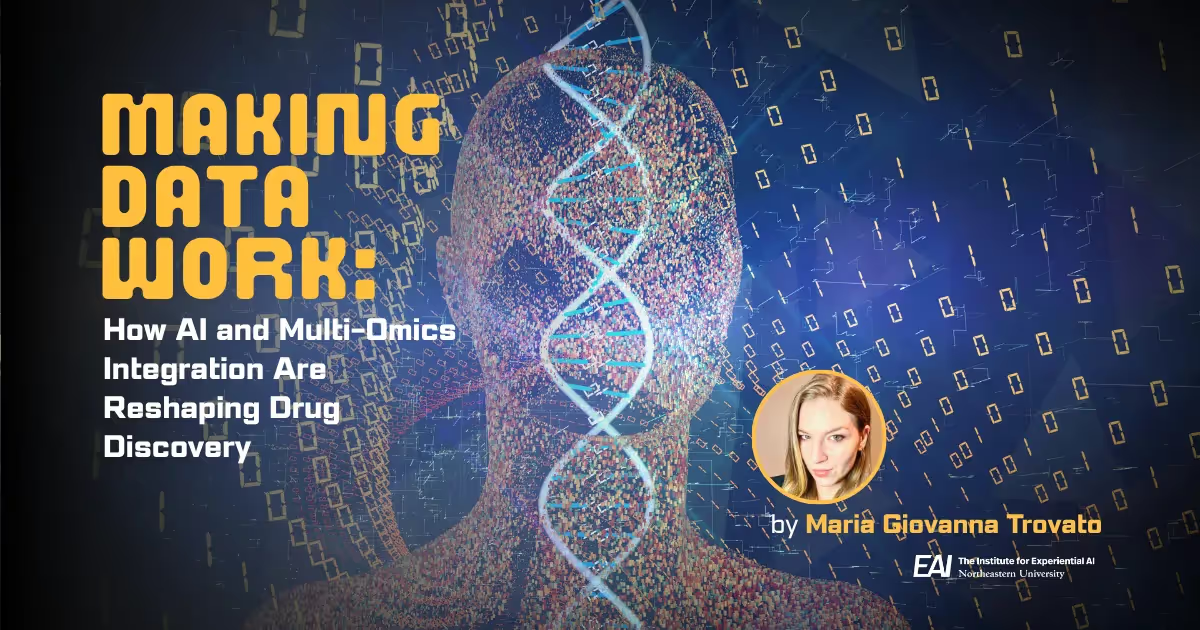What to know about Sensing Tech and Responsible AI

Sensing technology has already revolutionized healthcare, and not just in terms of personal fitness. Even acute care in hospital settings have benefited enormously from the increased fidelity of health data. With the help of AI, sensing tech has helped to improve treatment efficacy, facilitate disease detection, and analyze patient health in real time. But as the data collected from these instruments grow, so do the ethical concerns. That’s why companies that work with AI and sensing tech need to have a comprehensive, end-to-end approach to Responsible AI.
Here are five things to know about sensing tech and Responsible AI:

“In today’s healthcare model, the big challenge is all about data. We can create a clinical care model where AI, at its center, can transform doctor-patient interactions that are averaging, right now, only about 13 to 15 minutes per patient. We can have automated ecologic data sampling and labeling between patient and sensing technologies. AI can be used to compress that data, label that data, and fuse that data with electronic healthcare records so that they become an aggregate of information. And finally, visualization platforms of the aggregated data can be largely improved by AI models so that the physician really has a clear image of the big picture of a patient's status.”
—GENE TUNIK, DIRECTOR OF AI + HEALTH

“One of the great unsolved problems in psychology is the lack of correspondence between subjective reports and physical measures from the body. Our hypothesis is that this lack of correspondence is because psychologists are not designing their studies to sample and model the variation sufficiently. We developed a biologically triggered experience sampling method so that we could efficiently sample many, many moments of bodily change and their corresponding subjective reports, and I think that this method can be a game changer for a lot of questions in AI and health.”
—KAREN QUIGLEY, AFFILIATE FACULTY AND PROFESSOR OF PSYCHOLOGY AT NORTHEASTERN UNIVERSITY

“Wearables, sensing technologies, and IOTs are becoming so much a part of our everyday lives that they impact what kind of a society we are creating. But when we talk about responsible AI, it's often, "Here's the conversation about technology, and here's the conversation about responsible AI." That is setting ourselves up for failure. What we need to be thinking is, how do we make sure that ethics concerns are considered from the beginning and in ways that are perhaps even more integrated and structured than we have achieved with biomedical ethics?”
—CANSU CANCA, ETHICS LEAD

“I've worked in sensing and AI applications in clinical care for the last decade. My interests are in introducing wearables and nearables in the pre-hospitalization setting, while patients are hospitalized, when patients transition from acute care to physical rehab, occupational therapy in a care facility, and when they go home. [With a data-driven continuum of care,] we can track how a patient is doing regardless of where they are in the care environment, including into their home with the ultimate goal of making it safer to quickly transition patients back into everyday life. These technologies are going to be absolutely transformative in healthcare and in critical care. The algorithm will become a valued and ubiquitous member of the healthcare team.”
—RAI WINSLOW, CORE FACULTY AND DIRECTOR OF LIFE SCIENCES AND MEDICAL RESEARCH AT THE ROUX INSTITUTE

“We’ve witnessed how AI has incredible potential to transform human health, but sensing technology will be critical to reaching that potential. Sensing is a very broad field that includes wearables and devices that vary from the most common fitness tracker to tracking mats, motion sensing, earbuds, and so much more. This technology holds incredible promise to improve people’s lives, however in order to realize that promise the people who create this technology need to develop a full understanding of the risks associated with collecting sensitive data and using AI for private development and management. Responsible AI will become part of the platform for innovation, in addition to guarding against risks.”
— MARIA GIOVANNA TROVATO, GLOBAL STRATEGY & BUSINESS DEVELOPMENT IN HEALTHCARE AND LIFE SCIENCES
Read more from the Institute and see our events. Learn about our AI Solutions Hub, Responsible AI Services, on-demand AI Ethics Advisory Board, and discover business opportunities.




